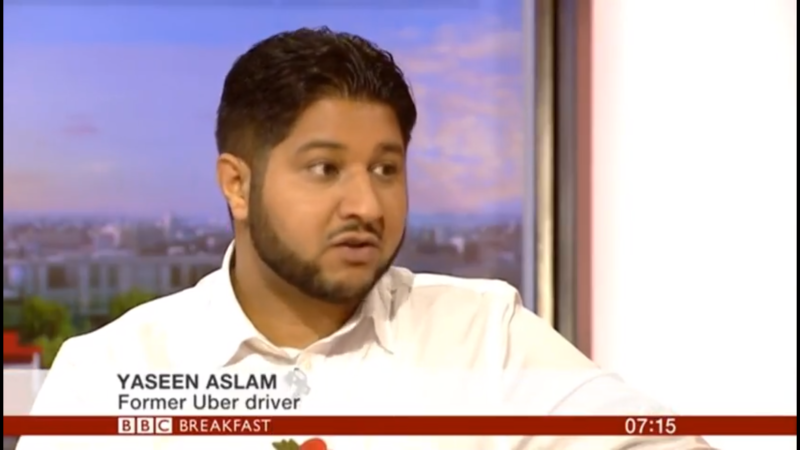Drivers want the data so they can calculate how much Uber may owe them

Four Uber drivers are taking the company to court in an attempt to force it to disclose the data it holds on them.
The drivers want the data to calculate how much they are owed in back pay and holiday pay.
They claim that Uber has been, for nearly a year, refusing to give them the data it holds on them – and that is in breach of Article 15 of the EU’s General Data Protection Regulation.
Article 15 states people have the right to “obtain from the controller confirmation as to whether or not personal data concerning him or her are being processed, and, where that is the case, access to the personal data.”
Despite this right, the drivers say they were met with d”elayed, inconsistent, incomplete, piece meal and mostly unintelligible disclosures before finally the firm ceased correspondence”.
James Farrar, one of the four drivers, said:
“For too long Uber has used its technology to abuse its power over drivers and deny them even the most basic of workplace rights. It collects vast quantities of personal data from its drivers and uses algorithms to surveill, manage, nudge, penalise, reward and even fire workers from behind the digital curtain.”
“Uber’s failure to abide by the GDPR cannot be allowed to go unchecked. Government and regulatory authorities must take decisive action so that all businesses, in their race to digitise, understand that personal data rights must be respected at work.”
Another driver taking action is Yaseen Aslam. He said:
“Uber told me I’d be my own boss, referred to me as a ‘partner’ and claimed their algorithm would empower drivers but instead they used their technology to exploit us all.”
“It’s upsetting that Uber have not released to me all my data which they still use to power their algorithm. This is further proof that gig economy employers like Uber manipulate our data behind the curtain to make huge profits for themselves while placing us at a financial disadvantage.”
The data the drivers want includes:
- The duration of time logged on to the platform – to calculate monies owed.
- GPS data – to enable drivers to calculate their operating costs including revenue and nonrevenue earning time and distance.
- Performance data, including suspensions from the platform – to enable drivers to understand how their performance was monitored and managed over time.
- Profiling information and details on how such data is processed, for example in automated dispatch decision making s would enable drivers to understand how they were profiled by the firm and the impact this may have had on the quality, quantity and value of work offered over time.
- Trip ratings. Drivers are dismissed when their rating dips below 4.4 so the ability to legitimately appeal unfair ratings on a trip by trip basis can be crucial to maintaining employment.
The legal action is backed by Worker Info Exchange, a start-up organisation campaigning for data access and digital fairness at work. The goal of the organisation is to help information workers in the gig economy and beyond to access, analyse and act on insights gained from their personal data collected and processed at work.
The drivers are being represented by Ravi Naik of ITN Solicitors. He has represented claimants in data cases against Cambridge Analytica, Facebook and the AdTech industry.
Joe Lo is a freelance journalist and a reporter for Left Foot Forward
To reach hundreds of thousands of new readers and to make the biggest impact we can in the next general election, we need to grow our donor base substantially.
That's why in 2024, we are seeking to generate 150 additional regular donors to support Left Foot Forward's work.
We still need another 124 people to donate to hit the target. You can help. Donate today.



